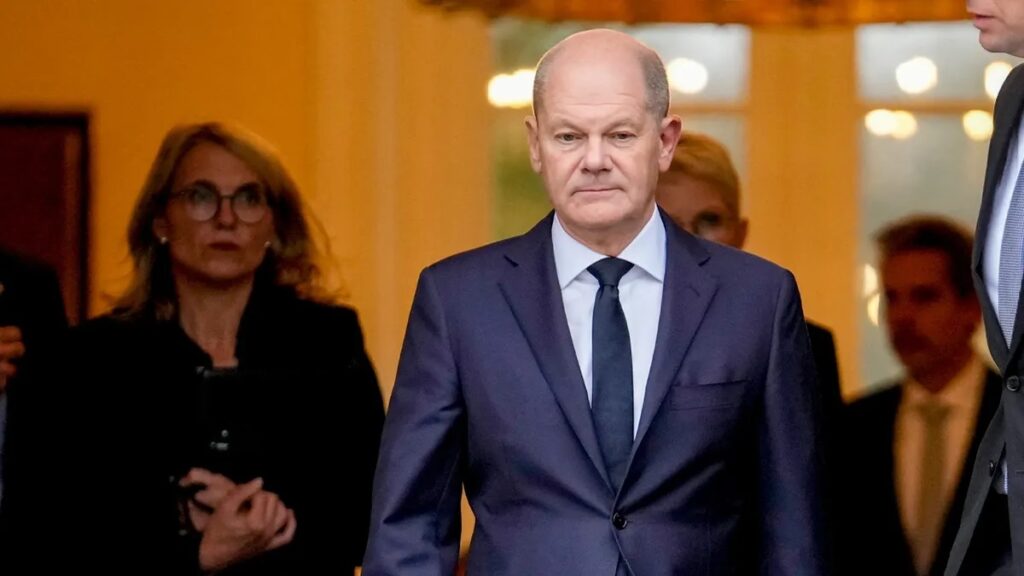Pressure Builds on Chancellor Scholz to Hold Confidence Vote Before Christmas
Background: Political Crisis in Germany
Chancellor Olaf Scholz faces growing pressure to hold a confidence vote before Christmas. Initially scheduled for January, the vote follows the collapse of his coalition. This move could lead to snap elections, shaking Germany’s political stability.
Coalition Breaks Down
The crisis escalated when Scholz dismissed Finance Minister Christian Lindner of the Free Democrats (FDP). This action ended the three-party coalition, leaving only the SPD and the Greens. Tensions over fiscal policy and economic disagreements had already strained the alliance. Scholz’s decision to fire Lindner led to the collapse of the partnership.

Scholz’s Position on the Vote
Scholz expressed his willingness to call a confidence vote before Christmas. “It is no problem at all for me,” he said. He emphasized that he wasn’t tied to his position. “I am not glued to my post,” Scholz added. He denied orchestrating the coalition breakdown, noting his efforts to keep the parties together.
Consequences of the Confidence Vote
Scholz is widely expected to lose the vote. If he does, President Frank-Walter Steinmeier will have 21 days to dissolve the Bundestag. New elections would follow within 60 days of the closure of parliament. This could lead to elections by early 2025.
Scholz’s Efforts and Challenges
Scholz defended his role in holding the coalition together, stating that his repeated efforts kept it alive. He described his decision to fire Lindner as clear and necessary. Despite the coalition’s collapse, Scholz maintained that he had prioritized cooperation and compromise. The early confidence vote reflects his determination to move forward.
Our Visitor






 Users Today : 44
Users Today : 44


